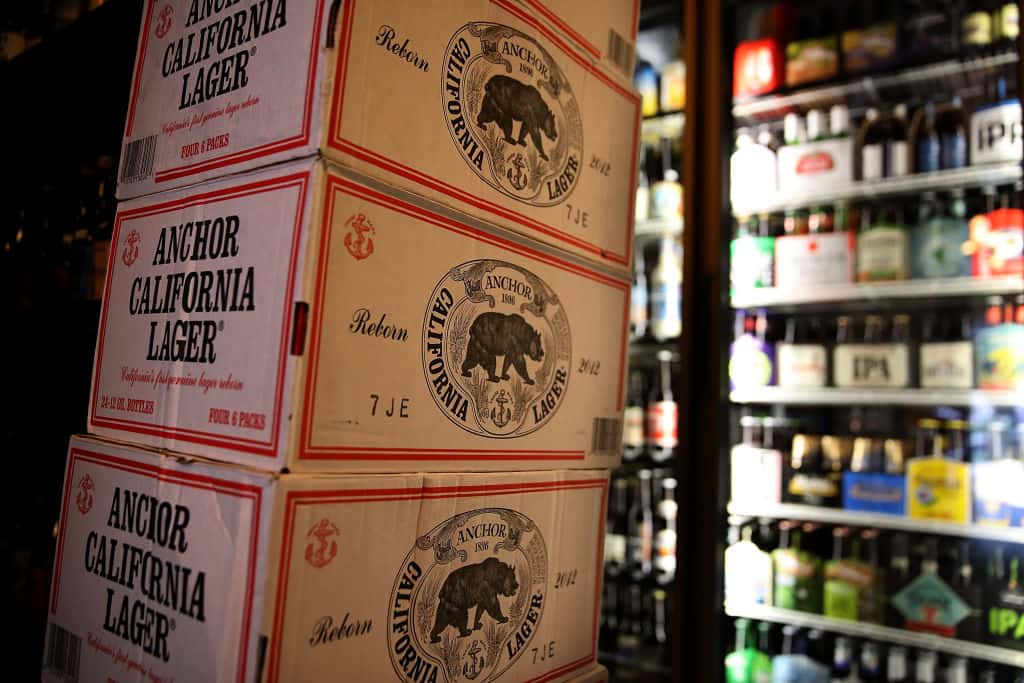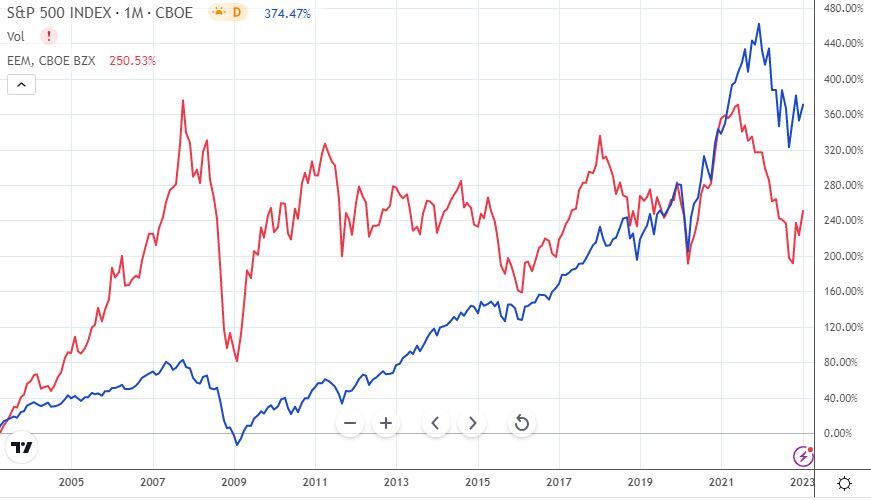Anchor Brewing's Closure After 127 Years: Impact On The Craft Beer Industry

Table of Contents
Anchor Brewing's Historical Significance and its Role in the Craft Beer Revolution
A Pioneer of American Craft Beer
Anchor Brewing wasn't just a brewery; it was a cornerstone of the American craft beer revolution. Its flagship beer, Anchor Steam Beer, a unique California common style, became a symbol of independent brewing and a testament to the artistry and passion behind craft brewing. Anchor Steam's enduring popularity helped define the craft beer movement and paved the way for countless other independent breweries.
- Key Milestones: Founded in 1896, Anchor Brewing survived Prohibition, championed traditional brewing techniques, and consistently pushed the boundaries of beer innovation. Their pioneering efforts in using all-malt recipes and emphasizing quality ingredients significantly influenced the evolution of American brewing practices.
- Contributions to Brewing: Anchor Brewing's dedication to quality and its commitment to traditional methods helped elevate the perception of American craft beer. Their influence on brewing techniques, from the use of specific yeast strains to their meticulous attention to detail, resonates throughout the industry even today.
- Cultural Impact: Beyond its brewing innovations, Anchor Brewing became synonymous with San Francisco's unique cultural identity, contributing significantly to the city's rich tapestry of artisanal businesses and artistic expression. Its iconic brewery and tasting room were vital parts of the San Francisco landscape.
The Financial and Operational Challenges Leading to Anchor Brewing's Closure
Consolidation in the Craft Beer Market
The craft beer industry, while experiencing immense growth for decades, has also witnessed significant consolidation. Large breweries have acquired smaller, independent operations, creating a more competitive landscape for smaller players. This increased competition, coupled with rising production costs, posed significant challenges to Anchor Brewing's long-term viability.
The Impact of the COVID-19 Pandemic
The COVID-19 pandemic dealt a devastating blow to the hospitality industry, including breweries. Bars and restaurants, key outlets for craft beer sales, experienced closures and reduced capacity, significantly impacting Anchor Brewing's distribution and revenue streams. The pandemic exacerbated existing financial pressures, accelerating the brewery’s decline.
- Rising Production Costs: The cost of raw materials (hops, barley, malt), labor, and distribution has steadily increased over the years, squeezing profit margins for many smaller breweries, including Anchor.
- Changing Consumer Preferences: The craft beer market is dynamic, with shifting consumer preferences and emerging trends. Anchor Brewing, while iconic, struggled to adapt its portfolio quickly enough to meet evolving market demands.
- Role of Sapporo Holdings: Anchor Brewing was owned by Sapporo Holdings, a Japanese brewing giant. While Sapporo's investment initially aided the brewery's growth, the ultimate decision to close likely reflected a strategic business assessment prioritizing profitability over preserving the historical significance of the brand.
The Ripple Effects of Anchor Brewing's Closure on the Craft Beer Industry
Loss of a Cultural Icon
Anchor Brewing's closure represents the loss of more than just a brewery; it's the loss of a significant piece of American brewing history and a cultural icon. Its closure leaves a void in the hearts of beer enthusiasts and serves as a stark reminder of the fragility of even the most established businesses.
Impact on Employment and Local Economies
The closure resulted in job losses for brewery workers and ripple effects on related businesses in the San Francisco Bay Area. The economic impact extends beyond direct employment, affecting suppliers, distributors, and local businesses that relied on Anchor Brewing's presence.
Lessons Learned for Other Craft Breweries
Anchor Brewing's closure provides crucial lessons for other craft breweries striving for long-term sustainability. It highlights the importance of adaptability, financial planning, efficient operations, and a clear understanding of market trends.
- Decreased Innovation and Diversity: The loss of a major player like Anchor Brewing could lead to decreased innovation and less diversity in beer styles and offerings.
- Impact on Suppliers and Distributors: The closure impacts suppliers who relied on Anchor Brewing for business and distributors who lost a significant product from their portfolios.
- Implications for Small Breweries: The closure serves as a cautionary tale for smaller breweries, highlighting the challenges they face in a highly competitive market characterized by escalating costs and rapidly changing consumer preferences.
Conclusion
Anchor Brewing's closure is a significant event with far-reaching implications for the craft beer industry. Its historical significance, the financial pressures leading to its demise, and the broader impact on the industry are all crucial factors to consider. Anchor Brewing's legacy serves as a sobering reminder of the challenges facing independent craft breweries. The future of the craft beer industry requires a focus on brewery sustainability, adapting to market changes, and supporting the independent brewers who contribute to the diversity and vibrancy of the craft beer scene. Let us all reflect on Anchor Brewing's closure and work towards ensuring the survival and success of the craft beer community by supporting independent breweries and advocating for policies that promote their growth and sustainability. The future of craft breweries like Anchor hinges on our collective action.

Featured Posts
-
 Fiscal Responsibility A Missing Element In Canadas Liberal Agenda
Apr 24, 2025
Fiscal Responsibility A Missing Element In Canadas Liberal Agenda
Apr 24, 2025 -
 Teslas Falling Profits The Musk Trump Administration Connection
Apr 24, 2025
Teslas Falling Profits The Musk Trump Administration Connection
Apr 24, 2025 -
 Office365 Data Breach Millions In Losses Criminal Charges Filed
Apr 24, 2025
Office365 Data Breach Millions In Losses Criminal Charges Filed
Apr 24, 2025 -
 Us Market Slump Vs Emerging Market Growth A 2023 Performance Comparison
Apr 24, 2025
Us Market Slump Vs Emerging Market Growth A 2023 Performance Comparison
Apr 24, 2025 -
 Nba All Star Weekend Green Moody And Hield Among Participants
Apr 24, 2025
Nba All Star Weekend Green Moody And Hield Among Participants
Apr 24, 2025
